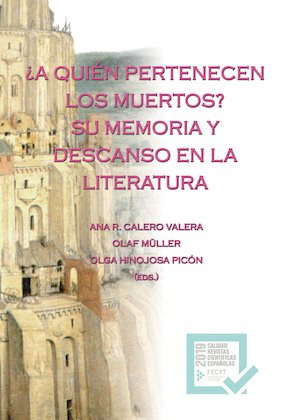Jenseits der Literatur? Tote Erzähler im Gegenwartsroman
DOI:
https://doi.org/10.7203/qdfed.24.16342Paraules clau:
unzuverlässiger Erzähler, Jenseitserzählung, magischer Realismus, mythopoetisches Schreiben Resum
Resum
Der tote Erzähler, der eine Geschichte erzählt, die seine eigene ist, gehört ins Genre der Jenseitserzählung. Doch diese Gattungstheorie liefert nur einen Teil der Erklärung für dieses merkwürdige, ja paradoxe Phänomen, das Vladimir Nabokov einmal so formuliert hat: „The ‚I‘ of the book cannot die in the book“. Der Beitrag untersucht, welche Rolle der Tod des Erzählers für sein unzuverlässiges Erzählen spielt, und zwar an den unterschiedlichen Beispielen von Patrick Roths Novelle Johnny Shines oder Die Wiedererweckung der Toten (1993) und von Daniel Kehlmanns Erzählung Der fernste Ort (2001). Das Jenseits, so zeigt sich, verschiebt die Grenze der Wahrnehmung des Erzählers ins Surreale und ist die Konstruktion eines magischen Realismus (bei Kehlmann) oder eines mythopoetischen Schreibens (bei Roth).
 Descàrregues
Descàrregues
Descàrregues
Publicades
Com citar
-
Resum856
-
PDF (Español)845
Número
Secció
Llicència
 Este obra está bajo una licencia de Creative Commons Reconocimiento-NoComercial-SinObraDerivada 4.0 Internacional.
Este obra está bajo una licencia de Creative Commons Reconocimiento-NoComercial-SinObraDerivada 4.0 Internacional.
Tots els documents inclosos a OJS són d'accés lliure i propietat dels seus autors i/o institucions editores, i per tant, qualsevol acte de reproducció, comercialització, comunicació pública o transformació total o parcial necessita el consentiment exprés i escrit d'aquests.
________
Authors who publish with this journal agree to the following terms:
- Authors retain copyright and grant the journal right of first publication with the work simultaneously licensed under a Creative Commons Attribution License that allows others to share the work with an acknowledgement of the work's authorship and initial publication in this journal.
- Authors are able to enter into separate, additional contractual arrangements for the non-exclusive distribution of the journal's published version of the work (e.g., post it to an institutional repository or publish it in a book), with an acknowledgement of its initial publication in this journal.
- Authors are permitted and encouraged to post their work online (e.g., in institutional repositories or on their website) prior to and during the submission process, as it can lead to productive exchanges, as well as earlier and greater citation of published work (See The Effect of Open Access).



